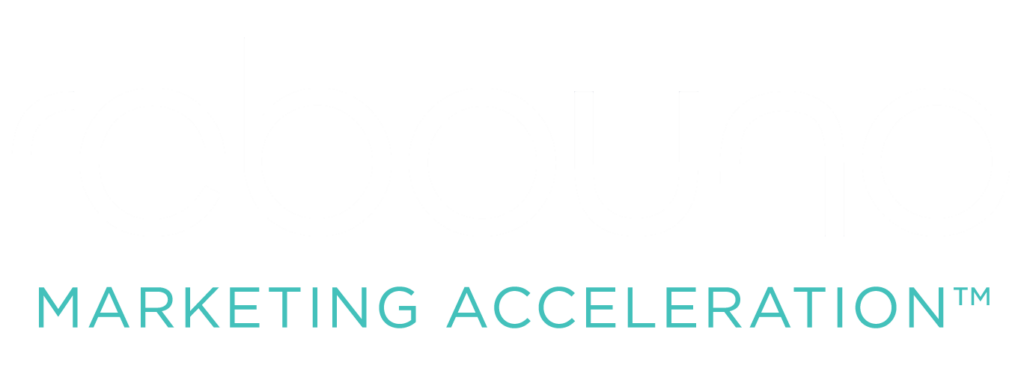Marketing in the life sciences technology sector is constantly evolving, fueled by innovations in Artificial Intelligence (AI), Software as a Service (SaaS) technology, data and analytics. Customers in pharmaceutical and medical device companies are also demanding personalized experiences from technology vendors. Life sciences technology leaders must grasp the changing B2B marketing landscape to stay competitive and continue growing. This article explores trends that will shape life science technology B2B marketing in 2025, with insights for marketing teams.
Rise of AI-driven Personalization
Artificial intelligence will transform personalization in broader life sciences marketing, moving beyond basic segmentation to true one-to-one marketing at scale. The impact of AI on content creation and lead scoring will enable technology marketers to invest in tailoring materials for high-priority customer prospects.
Content strategy will undergo a transformation through AI enhancement. While maintaining human oversight for quality and brand consistency, AI will enable:
- Automated generation of segment- and personal- specific content
- Real-time optimization based on performance metrics
- Personalized content recommendations at scale
AI-powered systems will enhance lead evaluation through multi-dimensional behavioral analysis and integration of external data sources. AI-powered systems will allow marketing teams to precisely target their efforts and resources. The technology will continuously learn and adapt, creating increasingly accurate predictions of conversion likelihood.
Outsourced Marketing Reaches Critical Mass
The outsourced marketing model will become more mainstream, driven by economic pressures and the growing complexity of life sciences technology marketing. This shift represents a fundamental change in how companies access and deploy marketing expertise. Tighter capital markets and the rising costs of full-time executive talent will make traditional FTE models less viable for many companies. The need for life sciences experience and expertise in disciplines like omnichannel and growth marketing are accelerating this trend.
Successful implementation of outsourced marketing programs will require clear areas of ownership and seamless integration with full-time marketing teams. Companies will need strong communication and flexible resource allocation models to maximize the value of these outsourced partnerships.
The benefits of this approach will extend beyond cost savings. Companies will gain access to diverse expertise and achieve faster time to market for new initiatives. The flexibility to scale resources up or down based on specific project needs will provide a significant competitive advantage.
Laser Focus on Customer Experience
In 2025, customer experience will be a differentiator for life sciences technology brands. Companies will create more immersive, personalized experiences that anticipate and fulfill the needs of their current and prospective customers. Sophisticated omnichannel approaches will communicate consistent value messaging in content tailored for different buyer personas.
The integration of digital and personal channels into seamless customer journeys will become more common. Real-time channel optimization using AI-driven analytics will ensure messages reach customers at optimal touchpoints.
Rising client expectations will demand sophisticated engagement tools, including:
- Advanced chatbots with deep industry knowledge
- Predictive engagement based on behavioral patterns
- Real-time tracking and check-ins with prospects and customers
- Automated response systems to check in with prospects and address common issues
Advanced Analytics Accelerate Decision Making
The role of analytics in life sciences technology marketing will move beyond reporting to a decision support system. Real-time data visualization and insights into industry trends and client behavior will be essential for staying competitive in the fast-paced life sciences technology sector.
Advanced analytics platforms will improve customer segment analysis, enabling organizations to understand different segments as behaviors emerge. This real-time capability will allow marketing teams to adjust their strategies proactively rather than reactively, using data insights to anticipate market shifts and customer needs.
Capabilities that will define successful analytics implementations include:
- Integration of multiple data sources for comprehensive analysis
- Customer journey mapping to identify key touchpoints and optimize interactions that enhance the customer experience
- Churn prediction and lifetime value forecasting
Shared Objectives with Sales
Marketing and sales are far more successful when they align to drive business growth. The trend of unifying commercial teams around customer acquisition, solution adoption, and retention will continue in 2025.
Moving away from the old model in which marketing focused on awareness and initial lead generation while sales cultivated opportunities and closed deals, these commercial functions will collaborate across the entire deal journey.
Success in this integrated approach will require:
- Agreement on common goals and KPIs across the entire commercial process
- Shared technology platforms for CRM, marketing automation, and reporting
- Joint planning processes, criteria for lead qualification, and pipeline management
Voice of the Customer Programs Grow
Life sciences technology companies will make customer intimacy a common marketing priority this coming year, to connect commercial and engineering teams with customer contacts outside of regular sales and deployment interactions. Voice of the customer initiatives better align customer needs with innovation plans, improve evidence generation, and accelerate solution adoption.
Customer programs include executive roundtables for technology vendor executives to discuss business requirements with their C-level customer peers as well as comparable forums for CTOs and CIOs shaping engineering priorities. These dialogues will provide insights into strategic priorities and industry trends, helping shape product development and go-to-market strategies.
Other ways to improve customer intimacy include:
- Advisory boards that influence product roadmaps and new messaging approaches
- Feedback loops integrated into product development cycles
- Early adopter programs that generate case studies for product launches
- User groups that provide feedback on solution usability and drive adoption
Innovations in Events
Technological advancements will enhance personalization, engagement, and accessibility in event marketing. The industry will master the art of hybrid events, combining the best aspects of physical and virtual experiences.
Hybrid event models will continue to evolve, offering broader participation opportunities while maintaining the value of face-to-face interactions. Advanced streaming technologies and interactive platforms will create seamless integration between in-person and virtual components, ensuring equal engagement opportunities for all participants.
Virtual networking will undergo a transformation through AI and machine learning technologies. Smart algorithms will facilitate meaningful connections between attendees, while virtual reality creates more natural and engaging networking environments.
Sustainability will gain consideration in event planning, with heightened focus on carbon footprint reduction through strategic use of virtual solutions and smart venue selection and resource utilization to reduce waste at in-person events.
Virtual and Augmented Reality Integration
VR and AR solutions will become essential tools in life sciences tech marketing, particularly for training and solution visualization. These technologies are moving beyond novelties and enabling immersive experiences for customers to explore detailed simulations of how products or services work in real-world scenarios.
These technologies enhance multiple use cases and will prove particularly valuable for explaining complex concepts and delivering remote technical training:
- Product demonstrations and virtual tours
- Technical support and troubleshooting
- Training and certification programs
VR and AR will significantly reduce the need for in-person product demonstrations while improving understanding and engagement among potential customers.
SaaS Solutions Reach Maturity
Adoption of SaaS applications for marketing will continue to grow, driven by their scalability in handling large data volumes, rapid update cycle, and simpler administration. This maturation will bring greater integration capabilities and operational agility to life sciences technology organizations.
Cloud-based platforms will also enable collaboration across functions, from marketing to sales to customer support. For instance, integrating CRM applications with marketing tech stacks will create unified customer views that enable more personalized and timely engagements.
Organizations that effectively leverage these platforms will gain significant advantages in market responsiveness and customer satisfaction.
Conclusion
The future of life sciences technology marketing hinges on technological innovation, analysis of ever-growing data sets, and strategic collaboration. Success in 2025 will require organizations to embrace these trends while maintaining the agility to adapt to rapid change. Companies that integrate these developments thoughtfully while tapping the creativity of specialized marketers will be best positioned to thrive in this dynamic landscape.
By intensifying their focus on customer experience, whether in personalizing campaigns or voice of the customer programs, life sciences technology companies can build competitive advantages. The key to success will be maintaining a balance between innovation and execution while keeping customer needs at the center of all marketing initiatives.
Ready to partner with Rebound to build a brighter, more innovative future in life sciences technology, schedule an introductory meeting with our industry experts.

